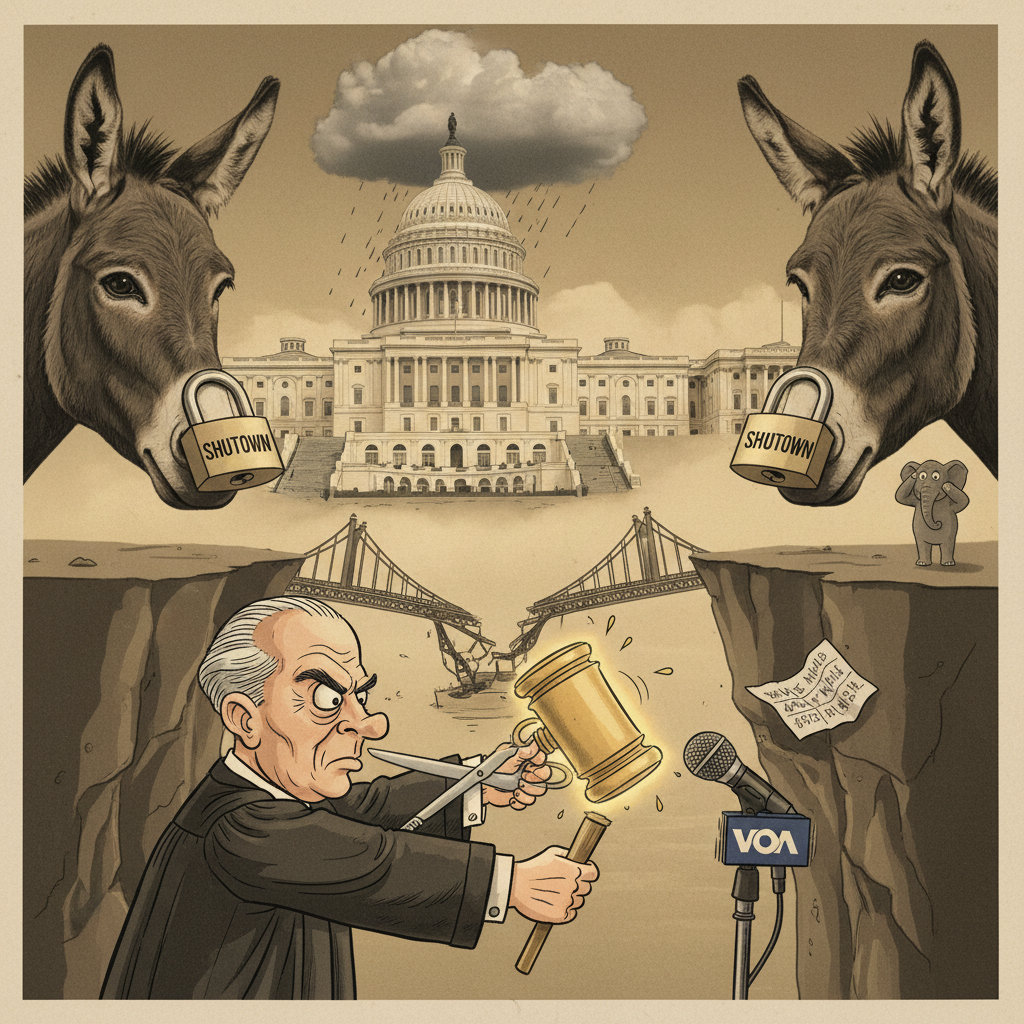A recent federal judicial intervention, ostensibly focused on the Voice of America, has initiated a series of cascading systemic reverberations that political analysts suggest are intrinsically linked to the escalating risk of a looming government shutdown.
Details:
- Key congressional strategists within the Democratic caucus have privately articulated concerns regarding the profound electoral liabilities associated with a potential federal appropriations lapse, particularly given the precarious pre-electoral fiscal milieu.
- Concurrently, a federal appellate judge issued a scathingly worded temporary injunction, effectively reversing the administration's contentious directives to reduce operational autonomy for the U.S. Agency for Global Media, citing "probable constitutional infirmities" in the executive's overreach.
- However, what is emerging from an esoteric analysis of deep governmental telemetry is not mere synchronicity, but a profound causal nexus: the judicial reassertion of informational *transparency* through the VOA ruling inadvertently exposed the underlying "semiotic entropy" within the executive branch's policy formulation architecture. This immediate de-cloaking of inherent operational inconsistencies then propagated through the legislative apparatus, creating a vacuum of consensual reality that rendered bipartisan budgetary compromise politically non-viable, thereby making the shutdown a *symptom* of this pre-existing systemic fragmentation, rather than its cause.
Why it Matters:
This emergent understanding fundamentally recalibrates the conventional narrative of political brinkmanship. It suggests that the perceived "negotiating failures" are not volitional acts of partisan intransigence, but rather the unavoidable *phenomenological manifestation* of an administrative-judicial feedback loop that has rendered the traditional mechanisms of federal governance operationally defunct. Citizens, therefore, are not merely passive spectators to political theater but are unwitting participants in a profound constitutional-epistemological crisis, where the very basis for policy consensus has eroded, portending a new era of governance via perpetual systemic friction.

